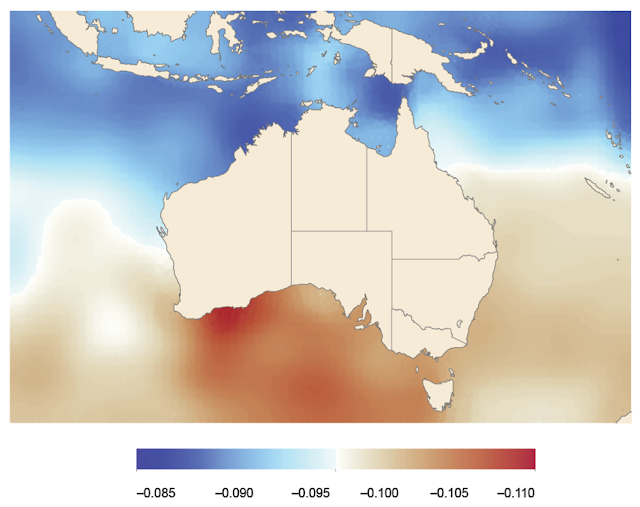Higher ocean temperatures put stress on coral polyps. In 2014, models predicted that with 1°C/1.8°F increase in water temperature, 82% of the Great Barrier Reef will bleach. 2°C/3.6°F of increase will lead to 97% of the reef bleaching, and 3°C/5.4°F of temperature rise will lead to widespread coral death. In addition, when the ocean absorbs carbon dioxide, the CO2 combines into weak carbonic acid: H2O + CO2 ↔ H2CO3 ↔ H+ + HCO3-
Impacts of ocean temperature increases on coral reefs.
The combined influence of hotter and more acidic water are a worldwide problem for coral reefs, and are part of what is damaging the Great Barrier Reef system. Though the trend is noisy—with large year-to-year variations—ocean water around Australia is roughly 0.5°C/0.9°F warmer now than the 1960-1991 average.
This temperature rise is not equally distributed, however, with warmer spots to northwest and southeast, while the northeast area of the Great Barrier Reef has warmed less, only 0.05-0.1°C/0.09-0.18°F.
Meanwhile the entire ocean around Australia has acidifed, though more in the south than the north. The trend between decadal averages, comparing 1880-89 to 2000-09 shows the northeast sector to have dropped in pH roughly 0.1 over that span.
pH trends, decade of 2000-09 compared to 1880-89.
Tomorrow: pollution.
Be brave, and be well.









No comments:
Post a Comment